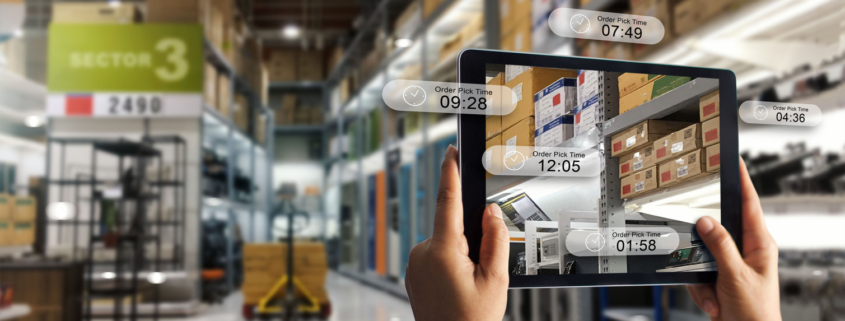E-commerce Process Automation Solutions: Simplifying Your Operations
In the bustling world of B2B e-commerce, not having an e-commerce process automation solution in place can bring a company to its knees. Our client once juggled countless orders, inventory updates, and customer inquiries single-handedly. It was the epitome of business ambition facing the harsh reality of operational overload, where the risk of errors loomed like dark clouds over potential growth.
Simplicity became the beacon.
The introduction of e-commerce process automation transformed chaos into order. Mundane tasks were streamlined, allowing the client to focus on strategic growth and customer relationships.
Streamlining Inventory Management With Process Automation
Automating inventory management in the B2B e-commerce sphere is like setting the cornerstone for a robust, resilient structure. With advanced software solutions, businesses can now synchronize stock levels in real-time across multiple channels and warehouses, eliminating the nightmares of overstocking or stockouts. These systems offer a comprehensive view, enabling intelligent forecasting and replenishment. Inventory automation doesn’t just save time—it fosters accuracy and efficiency, ensuring the right products are available when and where needed, fortifying trust with B2B clients who depend on precision within their supply chains.
Real-Time Stock Updates From Process Automation
Seamless inventory control is pivotal—automation ensures accuracy and immediate information sharing across platforms.
Automating stock updates can slash inventory carrying costs by optimizing stock levels.
By implementing real-time stock updates, businesses streamline operations, reduce inventory discrepancies, and confidently fulfill orders, securing customer satisfaction and loyalty.
Real-time visibility into inventory levels prevents stockouts and over-ordering, driving efficiency and upholding the integrity of supply chains.
Automated Reordering Systems
Automated reordering systems ensure optimal stock levels through precise, data-driven decisions.
- Identify Patterns: Leverage historical data to forecast needs.
- Set Reorder Points: Define thresholds that trigger the reorder process.
- Automate Purchasing: Enable system-driven purchase orders for restocking.
- Synchronize With Suppliers: Integrate with supplier systems for seamless replenishment.
- Monitor Performance: Analyze system efficiency and adjust parameters for continual improvement.
Real-time data feeds these systems, allowing for agile adjustments and strategic stock management.
These systems are indispensable for maintaining a robust, responsive supply chain, which is crucial for B2B success.
Optimizing Order Fulfillment By Process Automation
In the realm of B2B eCommerce, streamlined order fulfillment is paramount. A sophisticated process engineered to expedite order processing, from placement to delivery, enhances customer satisfaction and fortifies operational resilience. Incorporating intelligent warehouse management systems, which ensure that products are readily accessible and expeditiously dispatched, is a fundamental component of optimization that can’t be understated.
Employing advanced route planning and carrier selection software can further refine the fulfillment process. Designated as “the logistics orchestration,” these tools elevate transportation efficiency, determining the most cost-effective and timely delivery methods. By doing so, they champion the core objective of B2B transactions—reliability. Furthermore, automated tracking solutions uphold transparency, reassuring clients that their orders are en route and will arrive as promised, reinforcing trust and commercial bonds.
Auto-Generated Shipping Labels
Automation simplifies label creation with precision.
In the realm of B2B e-commerce, time is synonymous with currency. Streamlining the shipping process with auto-generated shipping labels is a pivotal step. Such automation eradicates the manual entry of address details, reducing the propensity for human error while simultaneously accelerating the label-creation process. These labels carry critical information for carriers, ensuring packages navigate the logistical network efficiently.
Seamless integration with carriers is essential.
Employing auto-generated shipping labels is more than a mere convenience. Once integrated into an e-commerce platform, it unlocks the potential for real-time carrier rate comparisons. This means B2B businesses can choose the most cost-effective shipping options, providing transparent and competitive pricing directly to their clients—a stark advantage in logistics.
Precision and pace set businesses apart.
The capability to print precise, carrier-compliant labels on demand is particularly important in the B2B sector. By drastically reducing the time traditionally spent completing these tasks, businesses recognize a tangible uptick in overall productivity. Incorporating these automated solutions ensures that 2024 remains a turning point for enhancing transactional velocity and reliability within the B2B ecosystem.
Carrier Selection Algorithms
Optimizing logistics with smart carrier selection is crucial.
In B2B e-commerce, carrier selection algorithms represent a sophisticated blend of technology and logistics expertise. They pivot on analyzing various metrics—such as shipping rates, delivery times, and reliability indices of carriers—to auto-select the optimal shipping partner for each order. Consequently, these algorithms are revolutionizing the accuracy and efficiency of shipping processes in a highly competitive marketplace.
Strategic shipping partners are identified swiftly.
Algorithms filter options, balancing speed with cost-effectiveness.
Intelligent algorithms are central to cutting-edge B2B operations. They act as pivotal decision-making tools—assessing multiple carrier attributes within seconds to suggest the most suitable shipping method. This convergence of speed and analysis ensures that businesses continuously optimize their logistics strategies, leading to increased customer satisfaction and operational excellence.
Adaptive systems align with dynamic market demands.
Enhancing Customer Relations
In B2B e-commerce, fostering steadfast customer relations hinges on the reliability and proficiency of the service provided. Routine check-ins and updates can be methodically deployed with automation, ensuring clients consistently receive personal yet efficient communications. This digital diligence serves as a cornerstone in establishing and maintaining trust.
Leveraging automation for nuanced customer engagement translates to a “white-glove service” approach. Businesses can proactively anticipate and address client needs by harnessing data-driven insights to customize interactions. In doing so, the symbiosis between service and client satisfaction strengthens, positioning companies to exceed expectations with a level of attentiveness that solidifies long-term business relationships.
Chatbots for Instant Service
In the B2B arena, chatbots provide indispensable round-the-clock support, fostering instant communication.
- Immediate Responses: Chatbots grant instantaneous replies to inquiries, streamlining client engagement.
- Consistent Availability: Unlike human counterparts, chatbots are available 24/7, eliminating wait times.
- Efficient Problem-Solving: They quickly navigate FAQs, offering efficient solutions to common queries.
- Personalized Interactions: Chatbots can be programmed to deliver tailored advice, enhancing the customer experience.
- Seamless Service Handoff: Should complexity escalate, chatbots smoothly transfer issues to human representatives.
Timely assistance is integral to customer satisfaction in B2B ecosystems.
Chatbots epitomize the intersection of convenience and technology, boosting operational efficiency.
Personalized Email Workflows
Efficient email workflows stand as pillars in enhancing B2B client engagement.
- Data-Driven Segmentation: Categorize contacts based on behavior, industry, and purchase history for targeted communication.
- Automated Triggers: Set up emails that automatically send based on specific actions a client takes or milestones reached.
- Dynamic Content Personalization: Craft emails that dynamically change content to match individual client profiles and preferences.
- Personalized Follow-Ups: Schedule automatic, tailored follow-up messages to nurture leads and deepen customer relationships.
- Analytics and Optimization: Monitor engagement metrics to refine the workflow and improve conversion rates continuously.
Tailored communication fosters a more intimate customer journey.
Intelligent automation allows for more meaningful conversations at scale, bringing human touch to digital interactions.
Integrating Financial Operations
Streamlining financial operations ensures seamless cash flow and accurate reporting.
In B2B eCommerce, integrating enterprise resource planning (ERP) and accounting software facilitates real-time financial data synchronization, enhancing strategic decision-making capabilities.
Businesses minimize manual errors and improve fiscal efficiency by automating invoicing and reconciliation processes.
Instant Invoicing Capabilities
Automated invoicing transforms the tedious task of billing into a swift, error-free process. As an expert in B2B eCommerce, I understand how crucial it is to issue timely invoices to maintain healthy cash flow and client relations. Automation empowers businesses to generate invoices instantly upon order confirmation, eliminating delays and human error.
With real-time integration between eCommerce platforms and accounting systems, invoices reflect the most current data. This synchronization ensures pricing, discount application, and tax calculation accuracy, which is essential for maintaining trust between B2B partners. Moreover, automated systems can handle complex billing scenarios, including subscription models and tiered pricing agreements.
In an environment that values efficiency, having the capability for instant invoice adjustments and re-issuance is indispensable. If there are changes in orders or issues to rectify, the system can promptly update and resend invoices. This level of responsiveness enhances customer service and helps adhere to strict B2B payment terms and compliance requirements.
Advancements in e-invoicing technology also enhance transparency and traceability. Each transaction is logged and easily accessible, providing the seller and buyer with a clear audit trail. Seamless e-invoice delivery allows for rapid confirmation and expedites approval, often the bottleneck in B2B payment cycles.
Ultimately, deploying instant invoicing solutions contributes to a streamlined financial ecosystem. It solidifies your business’s reputation for professionalism and reliability, underpinning the foundation of successful and enduring B2B relationships. This seamless financial operation is a cornerstone in optimizing the intersection where eCommerce meets fiscal management.
Automated Expense Tracking
Automating expense tracking is transformative for B2B eCommerce operations. It ensures accuracy and efficiency in financial management. It enables real-time visibility and control over expenditures, reducing the chance of human error.
Streamlined reconciliation becomes a reality with automated systems. Discrepancies are spotted and addressed swiftly.
Automated solutions capture and categorize expenses without manual input, leading to significant time savings and operational continuity. They facilitate a robust analysis of spending patterns, aiding strategic financial planning and decision-making.
Implement these systems, and your business can achieve substantial cost reductions. By meticulously documenting every transaction, inconsistencies are quickly identified and rectified. Such precision financial tracking is imperative in maintaining the lean and competitive nature of B2B enterprises, fostering an environment conducive to sustained scalability and growth.
In conclusion, implementing e-commerce process automation solutions is a game-changer for B2B e-commerce operations. By streamlining inventory management, optimizing order fulfillment, enhancing customer relations, and integrating financial operations, businesses can simplify their operations and achieve new levels of efficiency and reliability. These automated solutions not only save time and reduce errors but also foster trust with clients and pave the way for strategic growth and long-term success in the competitive B2B marketplace. Embracing e-commerce process automation is crucial for businesses looking to stay ahead and thrive in the ever-evolving world of B2B e-commerce.
In the fast-paced realm of B2B e-commerce, simplicity is critical. By leveraging advanced software solutions, businesses can sync stock levels in real time, expedite order fulfillment, provide personalized customer interactions, and streamline financial operations. The result is a smoother, more efficient operation that enhances client satisfaction and drives success. With automation as the driving force, businesses can confidently navigate the complexities of the B2B landscape, allowing them to focus on strategic growth and building lasting relationships with their valued customers. Embracing e-commerce process automation is the key to simplifying operations and unlocking the full potential of B2B e-commerce.
Ready to implement process automation in your e-commerce operations? Tell us a little about your company and the challenges you want to solve, and we’ll contact you immediately. Follow our blog and subscribe to our communications for more tips and trends on digital transformation and B2B commerce.




